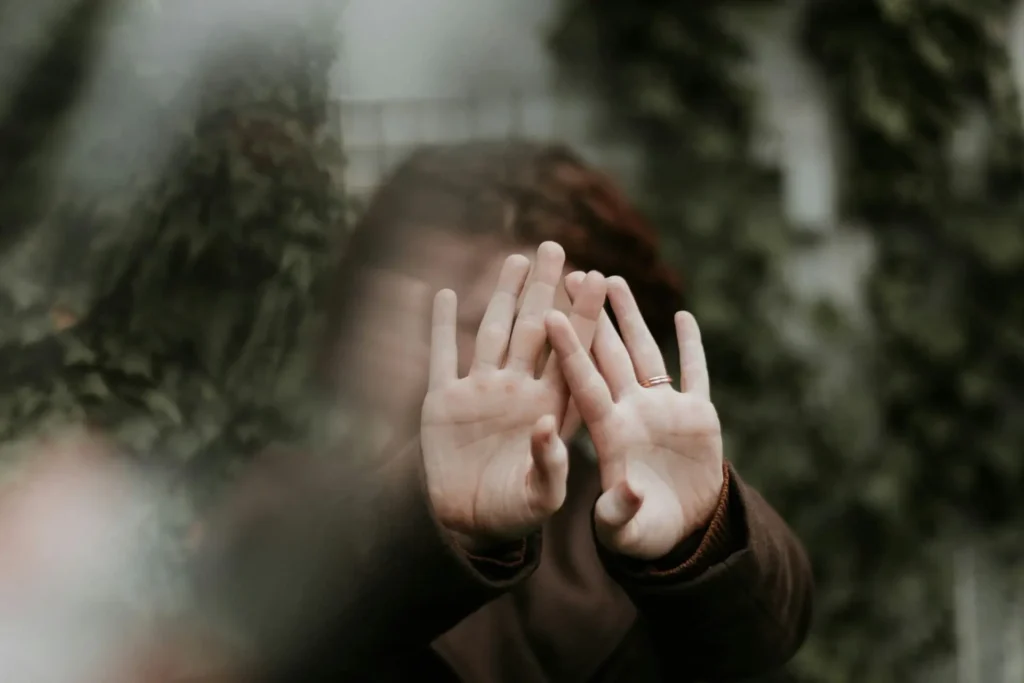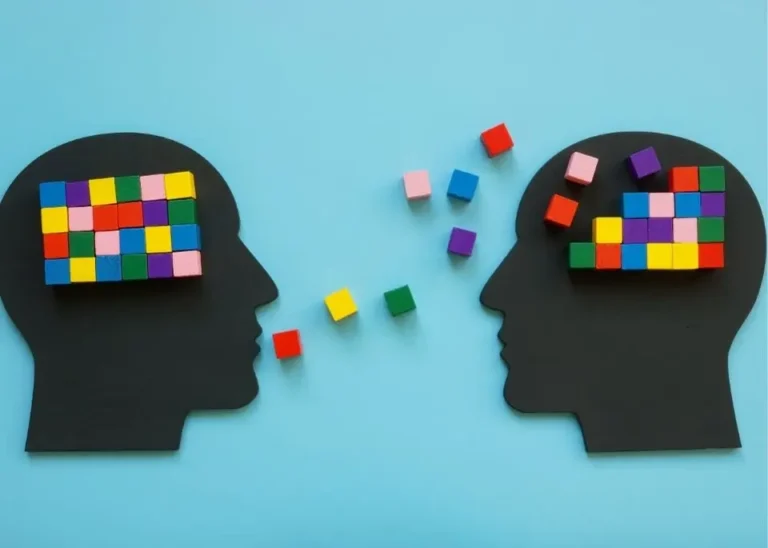What to do when someone with PTSD pushes you away?

Have you ever felt wounded and confused after being pushed away by a person you care about? In cases when the individual has Post-Traumatic Stress Disorder (PTSD), this can be particularly perplexing. A horrific or potentially fatal experience can trigger the mental health condition known as post-traumatic stress disorder, or PTSD. Although PTSD is frequently linked to veterans, it may affect anybody who has experienced tragedy. In reality, data indicates that 3.9% of people worldwide are thought to have had PTSD at some point in their life.
The inability to trust and feel safe in relationships can be greatly impacted by PTSD symptoms such as hypervigilance and flashbacks. This might lead to them inadvertently pushing away loved ones. The goal of this piece is to bridge that divide. We’ll examine the causes of this conduct and provide helpful advice for handling these circumstances in a kind and considerate manner. One way to build a healthier, more supportive connection with someone who has PTSD is to understand how to help them during their periods of retreat.
Understanding PTSD and its impact on relationships
Post-Traumatic Stress Disorder (PTSD) is a complicated mental health illness that occurs after being involved in or witnessing a terrible incident. This incident might range from a violent attack or natural disaster to a major accident or long-term emotional abuse. A traumatic incident is defined by the overwhelming anxiety, helplessness, or terror it causes in the individual.
People who suffer from PTSD face a variety of symptoms that can have a substantial influence on their everyday life. These symptoms are divided into four major categories:
Intrusion: Flashbacks, nightmares, and obsessive thoughts about the traumatic experience.
Avoidance: Avoid people, places, events, and discussions that bring up memories of the trauma. This might cause social isolation and trouble establishing connections.
Hyperarousal: Feeling continually nervous, jumpy, and easily startled. This can lead to problems sleeping, irritation, and difficulty focusing.
Negative Alterations in Cognitions and Mood: Difficulty feeling pleasant emotions, despair, alienation, memory issues, and unfavorable ideas about oneself and the world.
One of the most major ways that PTSD affects relationships is through its influence on trust and intimacy. The traumatic encounter might make the individual feel unsafe and vulnerable in the world. This might make it difficult for them to trust others and open up to them. They may fear being injured again, both emotionally and physically. This dread might present itself by pushing loved ones away, often unknowingly.
Setting appropriate limits and pushing someone away are not the same thing. Setting boundaries is a good method to ensure emotional well-being in any relationship. It entails articulating your wants and limitations to others. Pushing someone away, on the other hand, is frequently a subconscious reflex motivated by the dread and anxiety associated with PTSD.
Why they push you away: Exploring the reasons behind it
While pushing someone away might be cruel, it’s important to recognize that it stems from a deep sense of fear and protection. Let’s look at the precise reasons why someone with PTSD may push you away.
Triggers and Emotional Overwhelm
People with PTSD frequently encounter triggers, which are sights, sounds, scents, or events that remind them of the traumatic incident. These triggers can cause powerful feelings such as dread, anxiety, and panic. When someone with PTSD is triggered, they may push you away in order to create physical and emotional space and control their overpowering sensations.
Fear of intimacy and vulnerability
Building closeness necessitates trust and openness. However, PTSD can make it difficult to trust individuals and share emotions. The dread of becoming close and then being injured again might cause individuals to unconsciously push people away, preventing them from building deeper bonds.
Past Relationship Experiences
Negative experiences in previous relationships, particularly those marked by betrayal or abandonment, might reinforce the fear of intimacy. They may equate proximity with future anguish, prompting them to push people away as a preventive protection strategy.
Self-blame and Guilt
What NOT to do when someone with PTSD pushes you away
It’s normal to be wounded and bewildered when someone you care about pushes you away. However, certain reactions might be counterproductive, further isolating the individual with PTSD. Here’s what you should avoid:
Taking It Personally: When someone pushes you away, it is tempting to internalize the situation and blame yourself. Remember that their conduct is a symptom of their illness, not an indicator of your value.
Become angry or frustrated: Getting angry or upset might worsen the situation, making them feel even more alienated. Instead, prioritize understanding and compassion.
Pressuring them to open up: While open communication is essential, pushing someone with PTSD to discuss their tragedy before they are ready can be overwhelming. Let them know you’re available to listen when they’re ready to chat.
Ignore the Problem: Hoping they’ll “get over it” on their own is unlikely to be effective. Ignoring the topic may make them feel misunderstood and unsupported.
What TO do when someone with PTSD pushes you away

When someone with PTSD pushes you away, show compassion and empathy. Here are a few practical strategies you may take to overcome these circumstances and strengthen your relationship:
Practice patience and compassion: Remember, PTSD is a complicated disorder that requires time to heal. Be patient with them and their challenges. Provide unwavering support and understanding, even at difficult times.
Focus on Communication: Open and honest communication is essential in every relationship, but it is more vital in those with PTSD. However, avoid using accusing words or pushing interactions. Instead, try this:
Express your feelings: Tell them you care and that their retreat hurts you. Use “I” expressions to communicate your emotions without criticizing others.
Active Listening: When they communicate, actively listen without passing judgment. Reaffirm your support for them and acknowledge their feelings.
Create a safe space: When you chat, make sure it’s in a peaceful and private setting where they can express themselves freely.
Respect their boundaries: While pulling away may seem like rejection, it is often a coping mechanism for overwhelming emotions. Respect their desire for space while also letting them know you’re still accessible when they’re ready to connect.
Encourage Professional Help: PTSD is curable. Therapy can provide individuals with coping techniques and tools to help them manage their symptoms successfully. If they feel comfortable, volunteer to go with them to appointments and encourage them to get expert assistance. Consider therapy for yourself. Many therapists provide programs particularly geared to assist loved ones of persons with PTSD in understanding the disorder and developing helpful communication skills.
Maintaining Healthy Relationships with Someone with PTSD
Building a healthy and supportive relationship with a person suffering from PTSD takes a mutual effort. Here are some methods to care for yourself while being there for them:
Focus on Self-Care: Supporting someone with PTSD may be emotionally taxing. Make sure to prioritize your own health. Engage in enjoyable activities, communicate with your support system, and do not be afraid to seek professional help if necessary. If you are healthy and robust, you will be better able to help them in the long run.
Provide Support Without Pressure: Show them you care and are there for them. Suggest things you can do together, and show your concern via deeds, but don’t put pressure on them to join if they’re not prepared.
Celebrate small victories: Recovery from PTSD is a journey rather than a destination. Recognize and appreciate their accomplishments, no matter how minor. This positive reinforcement may encourage them to continue their recovery path.
Set realistic expectations: Relationships with people who have PTSD are likely to have ups and downs. Set reasonable expectations for the rate of advancement and recognize that there will be setbacks.
By taking these measures, you may create a caring and empathetic atmosphere in which the person with PTSD feels comfortable enough to progressively open up and connect. Remember, patience, compassion, and open communication are essential for developing a healthy and enduring relationship.
Conclusion
Being pushed away by someone with PTSD can be a perplexing and painful experience. However, with awareness and the appropriate technique, you can manage these circumstances and form a solid, supporting connection. Remember that PTSD is a curable disorder, and with patience and compassion, you may be a source of support and encouragement as they work to heal.
Inward Healing Therapy might provide further assistance for you or a loved one suffering from PTSD. Our trained therapists specialize in treating PTSD and other trauma-related issues. We provide a number of therapeutic techniques to help you develop a tailored treatment plan that addresses your specific requirements. Contact us today to learn more about how we can help you recover from trauma.
FAQs about PTSD and Relationships
1. Why does someone with PTSD push me away?
It’s confusing when someone you care about pulls you away. Flashbacks and emotional triggers can be overpowering for people suffering from post-traumatic stress disorder. They may retreat to make space and manage their powerful emotions, or because they are afraid of getting too near and experiencing another tragedy.
2. What shouldn't I do when someone with PTSD pushes away?
Reacting in anger or taking it personally might leave them feeling alienated and criticized. Avoid forcing them to discuss their trauma before they are ready. Patience and understanding are critical.
3. How can I support someone with PTSD who pushes me away?
Let them know you care and are available to them, even if you are separated by distance. When they do communicate, engage in active listening and affirm their emotions without judgment. Encourage people to get expert therapy from a PTSD therapist.
4. How can I take care of myself while supporting someone with PTSD?
Supporting someone with PTSD may be emotionally taxing. Prioritize your favorite hobbies and connect with your personal support system. Never hesitate to get professional assistance if you need it. A healthy you can help them in the long term.
5. Is there hope for a healthy relationship with someone who has PTSD?
Absolutely! You may develop a solid and supportive connection by being empathetic, patient, and communicating openly. Remember that PTSD is curable, and with expert assistance, your loved one may control their symptoms and establish meaningful relationships.




